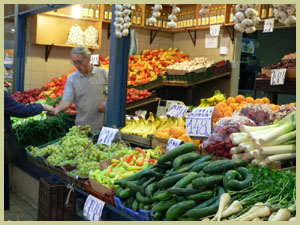
A few days ago, I came across an article published in Salon , a review of the newly published book Hungry Planet

I immediately loved the idea developed in the book by both participants: Peter Menzel photographed 30 families in 24 countries along with the food they consume in the course of a week, and Faith D’Aluisio wrote about the eating habits of each. What a great topic to talk about!
I cannot hide it, I have always shown a strong interest in what people eat all around the world. Some people like to ask “what’s the weather like today?”, I would rather ask “what did you have for breakfast or what are you having for lunch or dinner?”. It is terrible to acknowledge such a thing, but I cannot tell you how many times I was teased because I was always carrying food around with me, or I was thinking about dinner at breakfast. Not that I am scared that breakfast is going to be my last meal and I already have to project my thoughts in lunch or dinner, but because I know the preparation and organization involved when preparing food is crucial. I needed to add this for all those who still believe I was totally crazy.
So are we what we eat?
Well, I am certainly not a believer that food is the mere fuel that helps us keep going. It is not a matter of survival, but I also know that I am in a lucky place because I can choose and decide what I want to eat, when in a lot of countries or households, people do not have this luxury. They only eat what they can afford to buy or to find. So yes indeed, I believe we are what we eat. Furthemore, I would add, when one is happy with one’s food, one is a happier person. Funny to think about this but we have this expression in French:
“Je ne suis pas dans mon assiette“, which means, I am not feeling great (literally, I am not in my plate).
The ingredients that are dominant in one country’s culture, why rice rather than potatoes give a real insight of the country’s history, its climate and traditions. Whenever my husband Philip and I travel, we always want to eat local products, go to markets, eat the country’s traditional food. My recent travel to Budapest enabled me to discover beautiful displays of paprika and scents that were the first door open of the country to me.
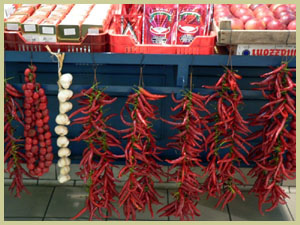
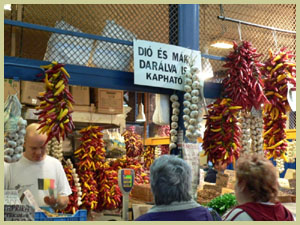
In Cape Verde, we observed the whole episode of the fish arrives on the dock , on one of the piers. Pretty big fish!

Keeping the food of a culture and country alive is as important as making sure that for example, the Swiss Alps stay in Europe, or that people continue to speak English in the US (mind you, this is changing). Unfortunately, with the spread of globalization, some damage is surely made. Well, not all negative….the positive side though with it is that you get to experience foods that you would never but if you were to travel to some countries. Hence if you go to any big town’s Chinatown, there you get a sense of people’s food habits. It is not like eating in China for sure, but it is better than nothing.
Looking at it from the microscopic eye, grocery stores are also a great place where you can study people’s food habits. When I go grocery shopping, I cannot help but be curious, and very discreetly have a peek at what people buy. Are there many processed foods, what kinds of vegetables, or bread? Are they buying fat free products, no cholesterol? Are there children in the house, vegetarians? Pets? What do people drink? So many fun things to study!
Spending more time thinking about food in those terms, at home or abroad (which means not taking the suggested continental breakfast but rather take the traditional breakfast) is like studying a bit of one’s own culture or of a new country culture. You get to know more about the people and its history, and why things are the way they are. If this is not clear, I have an example to illustrate this point:
There are good reasons why we call the Brits Rosbeefs and they call us French, frogs. That explains a lot.

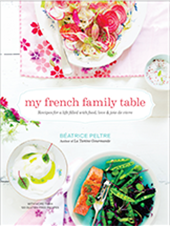
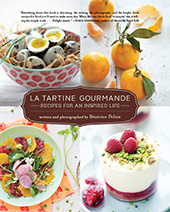
That’s my first time on your page and I’m glad to see the pictures because they were made in my bornplace: Budapest. I hope you liked my city. I’m not good at english, but I’m enjoy reading your posts. Your photos are great! Greetings Eva
hello. i was wondering if you could write when the book Hungry planet was published. I need it for a bibliography. thanks!